Should Guns and Dementia Mix?
Dementia is a complex condition that affects millions of individuals worldwide. But what happens when there are guns in the home? This issue is often not thought about until dementia has advanced and the family becomes concerned for their safety. As caregivers, it is crucial to ensure the safety and well-being of our loved ones with dementia. The presence of guns or firearms in the home requires careful consideration.
This blog post will delve into the intersection of guns and dementia. We will provide valuable insights by addressing frequently asked questions. Along with discussing the importance of responsible firearm ownership. Let’s embark on this journey to promote safety, reduce risks, and foster a secure environment for our loved ones.
First, let me share that we had a first-hand experience with guns and dementia several years ago. My uncle was a retired Airforce officer who always kept guns in the home. They were not only for protection, but he was an avid collector. He had quite a collection.
As the disease began to progress, he became more forgetful and confused. One day he drove to the mall, which was only 2 miles away and a straight shot from home, and he got lost. He was lost for approximately 6 hours and didn’t find his way home until late that night. This really shook him up, and it was his eye-opener for what was to come. He decided on his own it was time to get rid of the guns. He gave them all to his sons, grandsons, and nephews, except for one. The one pistol he kept at home for safety was kept in a safe place by his wife.
We were lucky that he recognized the safety issues ahead on his own. Many families are not that fortunate, and gun safety concerns can become serious. Guns in dementia homes have led to serious injuries and even death to family members. Some people with dementia have also used them to commit suicide.
Exploring Safety Measures for guns and dementia
When it comes to guns and dementia, safety should be the utmost priority. Here are some key safety measures to consider:
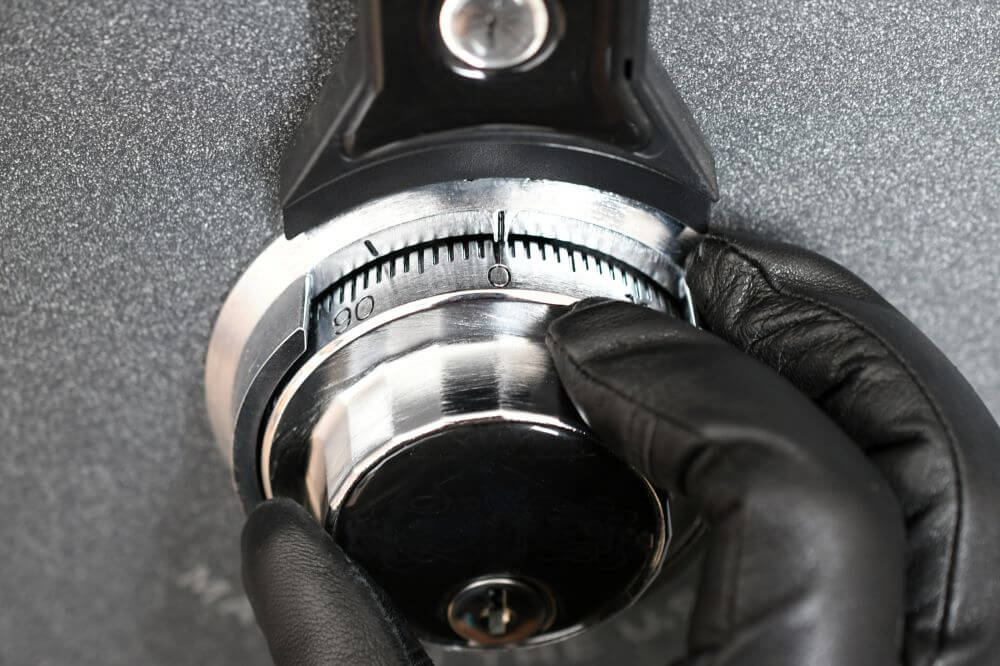
Safely Storing Firearms:
Proper storage is crucial to prevent unauthorized access. Ensure that guns are securely stored in a locked cabinet or gun safe. Ammunition should be stored separately. This reduces the risk of accidental or unauthorized use.
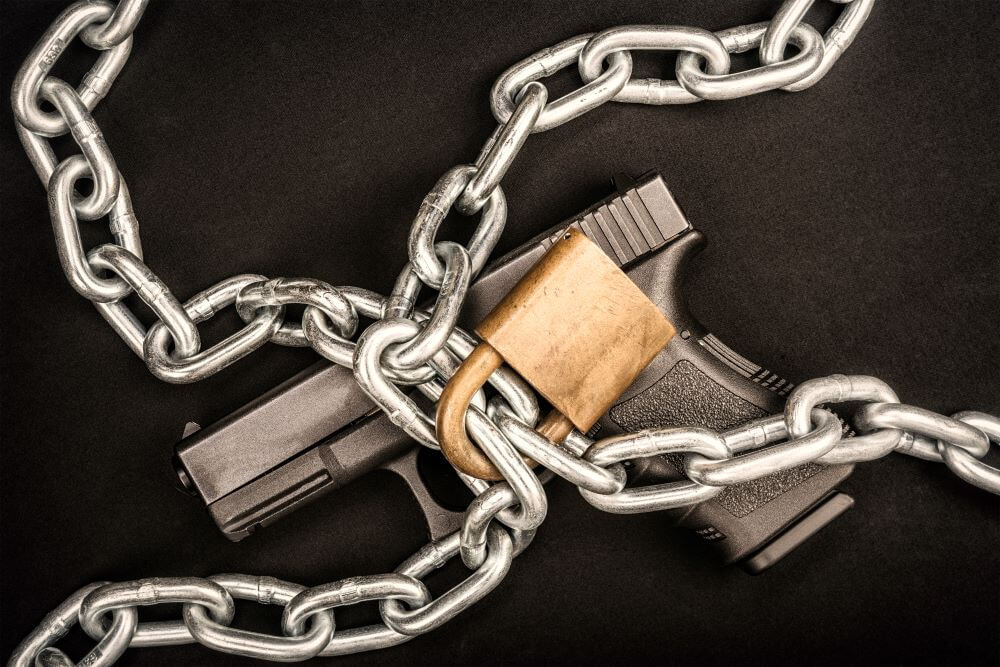
Limiting Access:
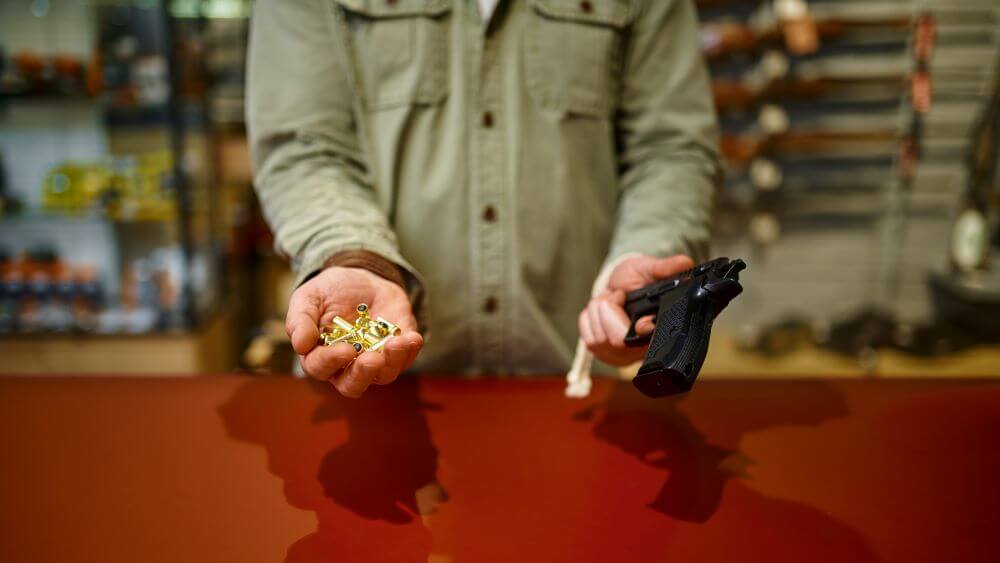
Educating Family Members and Caregivers:
Ensure that everyone in the household understands the importance of firearm safety. They should each receive appropriate training on handling guns responsibly. This includes educating them about the risks associated with dementia and the need for precautions.
If you have guns and dementia in your home, PLEASE watch!
Frequently Asked Questions About Guns and Dementia
Let’s address some common questions caregivers may have regarding guns and dementia:
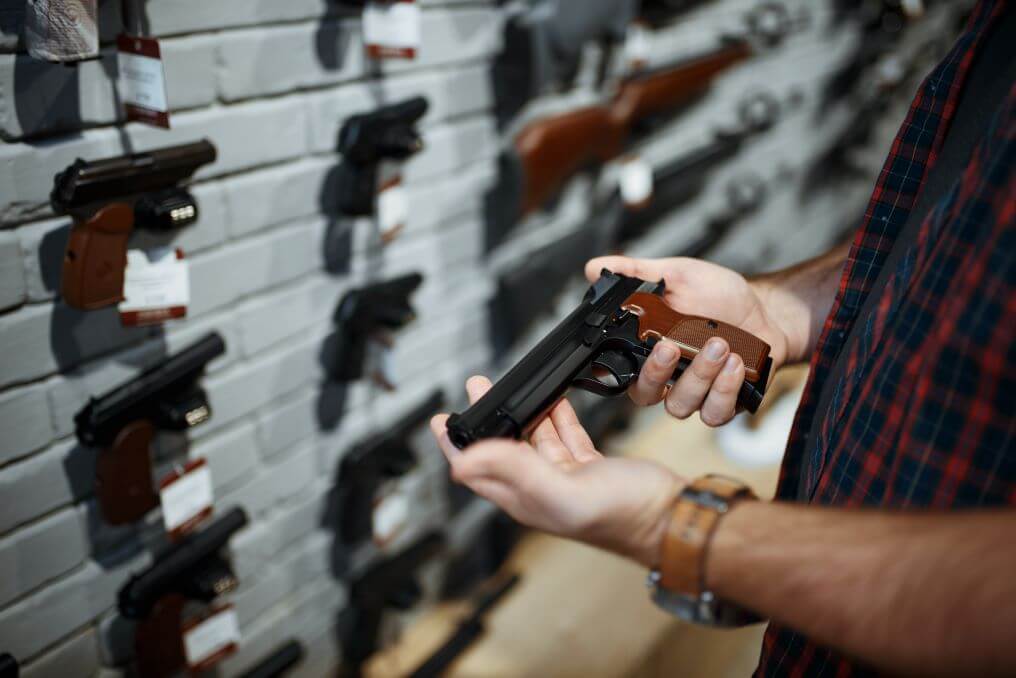
Can a Person with Dementia Safely Handle a Gun?
The ability of a person with dementia to handle a gun safely depends on their cognitive abilities. Their judgment and overall functioning is also determining factor. As the disease progresses, memory, reasoning, and motor skills impairments decline. This increases the risk of accidents or misuse. It is generally recommended to remove firearms from the home to ensure safety.
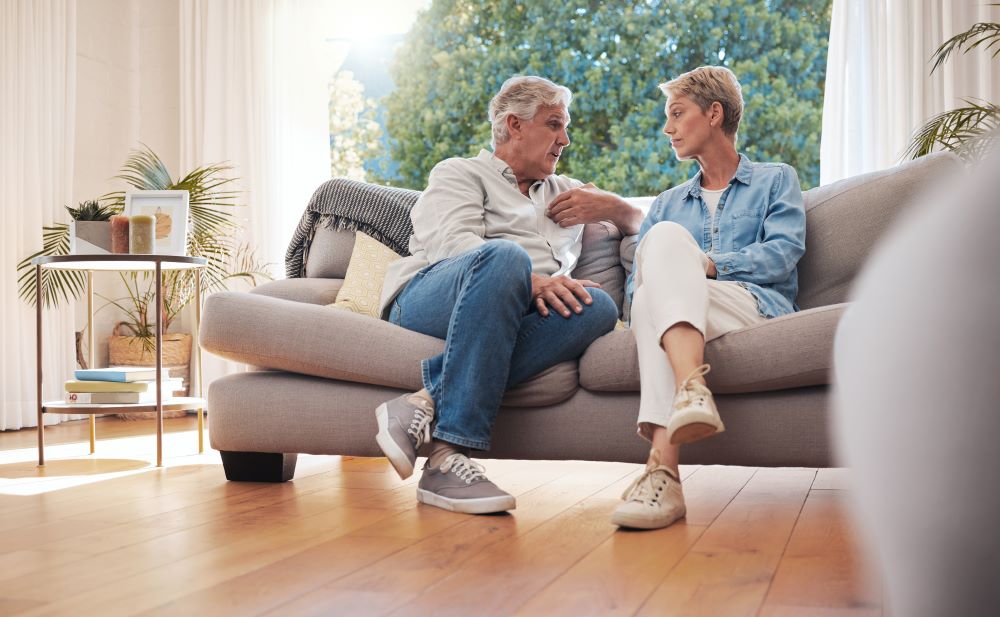
How Do I Discuss Firearms with a Loved One with Dementia?
Open and honest communication is key. Engage in a compassionate conversation. Express your concerns about safety and the potential risks associated with firearms. Involve healthcare professionals or support groups to provide guidance and help initiate discussions.
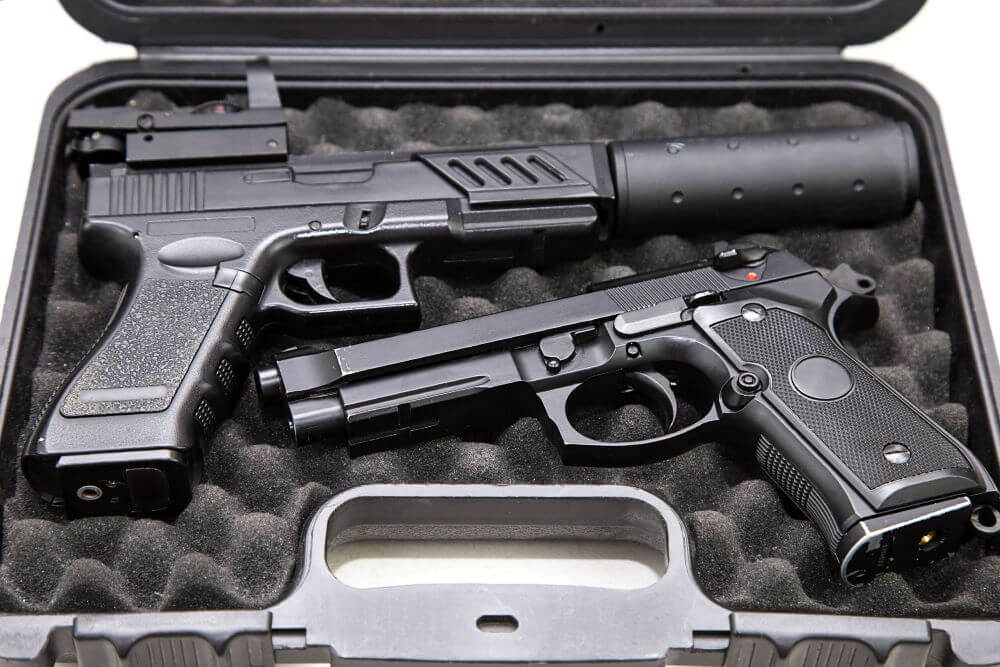
What If My Loved One Insists on Keeping Their Firearms?
Respecting their autonomy is important, but safety must remain the top priority. Explore alternatives, such as storing guns with a trusted friend or family member. Some caregivers have temporarily disabled the firearms. Others have replaced them with non-lethal alternatives like airsoft guns for recreational purposes.

What do we do with the guns?
It is important to have a plan. When a gunowner is in the beginning stages of Dementia, this is the time to have the gun discussion. Talk about where the guns should go when something happens to them. Have them write down which family member the guns should go to. This will help the transition go smoother when the time comes, especially if it is in their own handwriting.
Recognizing the Risks of Guns and Dementia
Understanding the risks associated with guns and dementia is essential for creating a safe environment.
Consider the following:
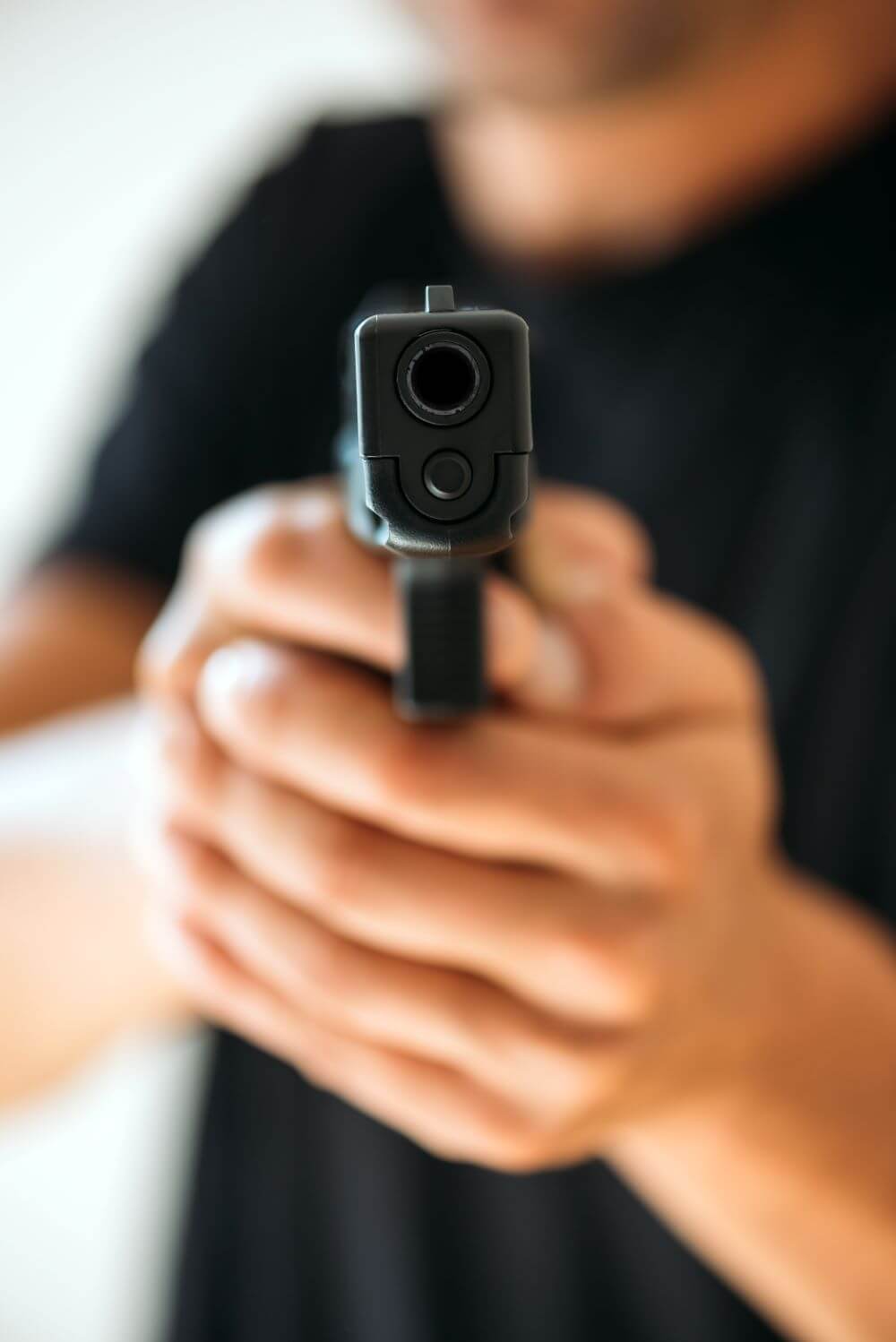
Increased Accidental Injuries:
Dementia-related cognitive decline can lead to confusion and impaired judgment. This increases the risk of accidental injuries. The consequences may lead to fatalities when guns are mishandled or discharged unintentionally.

Potential for Aggression and Misuse:
In some cases, dementia can lead to behavioral changes, including aggression or paranoia. The presence of firearms may exacerbate these tendencies. These behavioral changes can increase the risk of harm to individuals with dementia and others.
Responsible Firearm Ownership and Caregiver
Responsibility As caregivers, we play a critical role in ensuring responsible firearm ownership. Consider the following responsibilities:
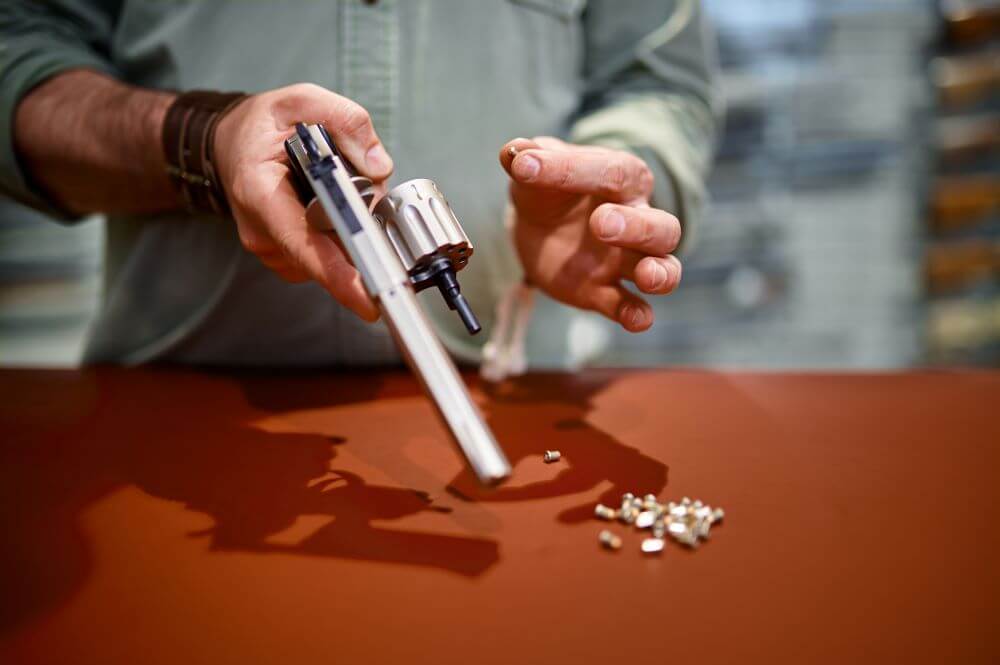
Regular Firearm Safety Training:
If you choose to keep firearms in the home, think about safety for all. Make sure that all caregivers and family members receive proper firearm safety training. This empowers everyone to handle guns responsibly and respond appropriately in emergency situations.
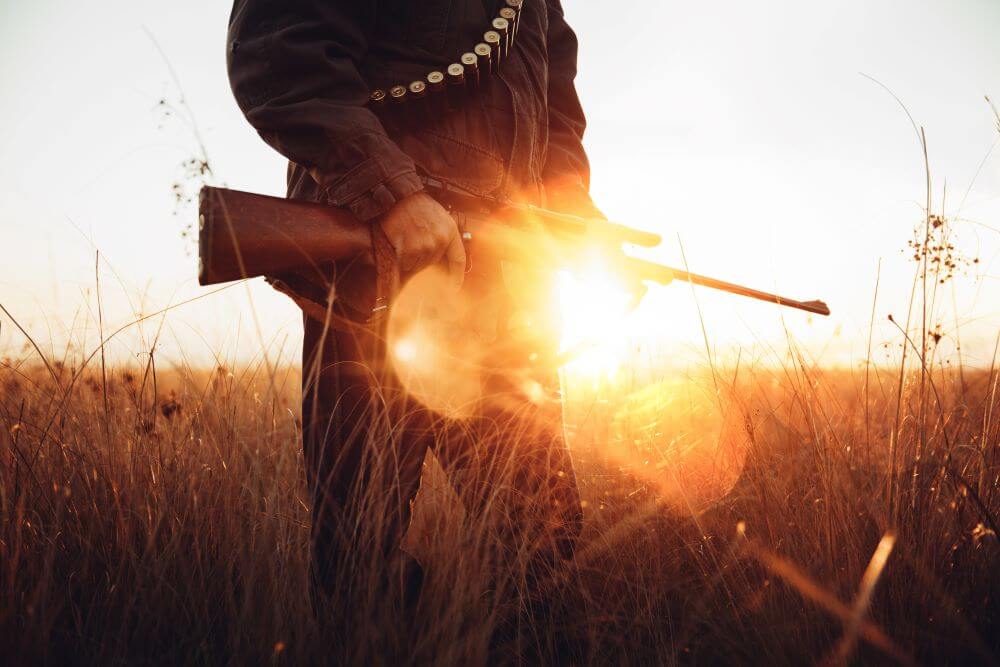
Regular Assessments and Reevaluation:
Periodically reassess the individual with dementia’s ability to handle firearms safely. As their cognitive abilities decline, it may become necessary to remove firearms from the home. This will completely minimize the risks.
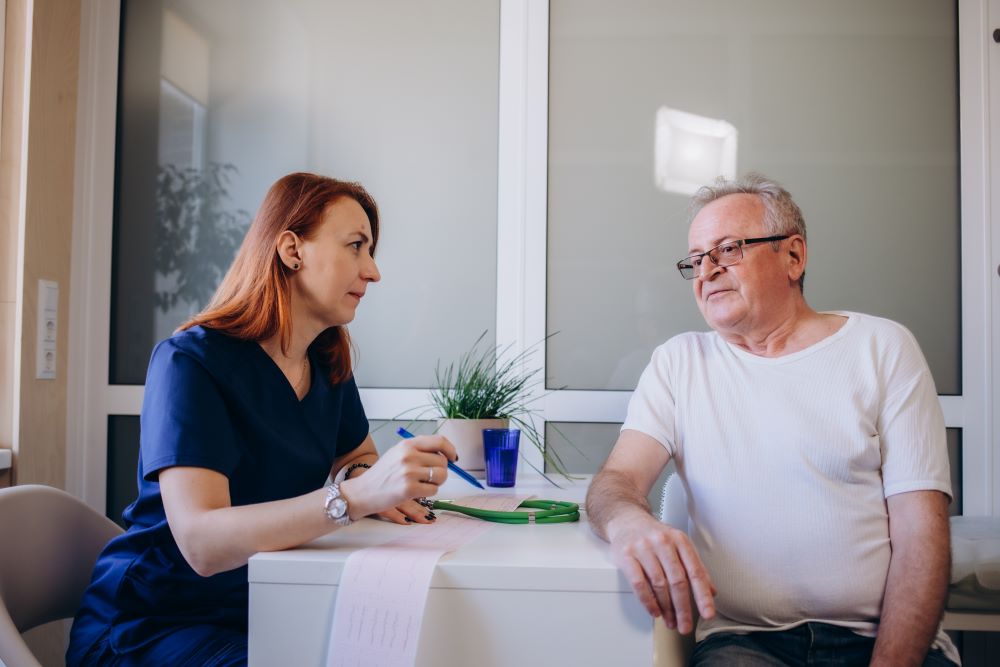
Seeking Professional Advice:
Consult with healthcare professionals, such as doctors, geriatric psychologists, or social workers, who specialize in dementia care. They can provide guidance on firearm safety. They can provide risk assessment and strategies for maintaining a secure environment.
Conclusion:
Navigating the complex landscape of guns and dementia requires careful consideration, compassion, and responsible decision-making. By prioritizing safety, implementing appropriate measures, and seeking guidance from professionals, caregivers can create a secure environment for their loved ones with dementia.
Remember, responsible firearm ownership and open communication are essential for the well-being of all involved.
Let us strive for a world where safety and empathy coexist, ensuring the highest standard of care for our loved ones.
The Dementia Caregiver Blog Library
Activities, Advanced Directives, Agitation, Apathy, Approach, Apps for Caregivers, Basic Caregiving, Bathing, Bathroom Safety, Caregiver Burnout, Caregiver Compassion, Caregiver Emotions, Caregiver Help, Caregiver Loneliness, Caregiver Support, Cold & Flu Season, Communication Challenges, Dehydration, Dementia Complications, Dementia Doctors, Dementia Safety Home, Dementia Types, Dementia-Friendly, Dressing Issues, Driving Safety, Eating Problems, Fall Prevention, Family Help, Finances, Guns & Dementia, Harm Prevention, Healthcare, Help at Home, Hiding Dementia, Holidays, Hospice, Hospital Stay, In-Between Stage, Kitchen Safety, Laughter, Legal Healthcare, Marijuana use, Medication Tips, Music, Nutrition, Pain, Patience, Poop Problems, Relationships, Reminiscing, Routine, Safety, Sense of Purpose, Shadowing, Sleep Issues, Stages of Dementia, Sundowning, Television, Time Travel, Traveling, Toileting, Wandering
Exploring Caregiving Tools & Resources? Don't Forget to Check Out My Resource Page! 🌟
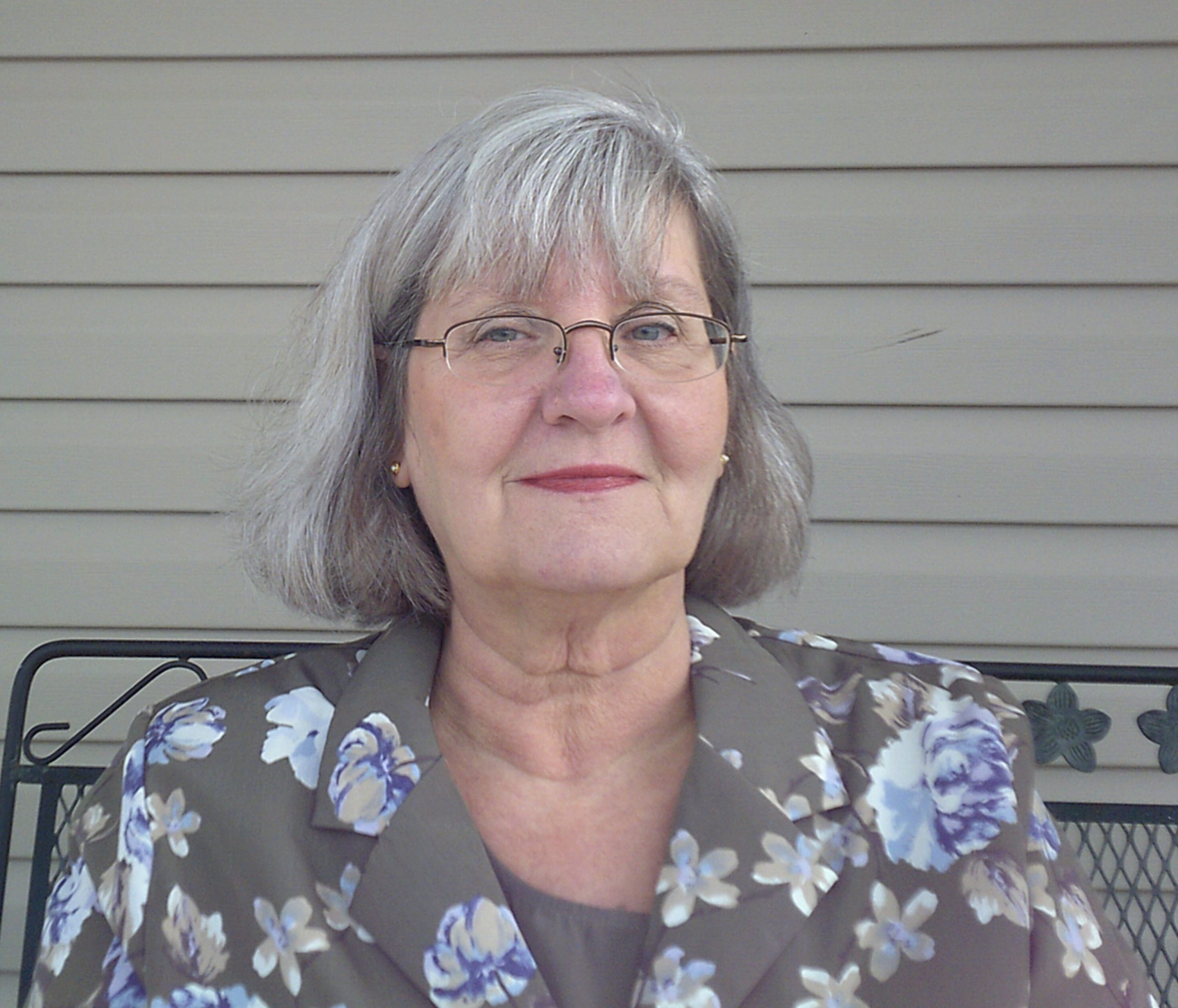
Hi, I’m Larea, a Certified Dementia Specialist and Registered Nurse with 30 years of hands-on experience helping dementia patients in various settings, from hospitals to nursing homes and hospice. Drawing on personal experiences with my family members and patients over the years, I’m here to help guide you on your caregiving journey.

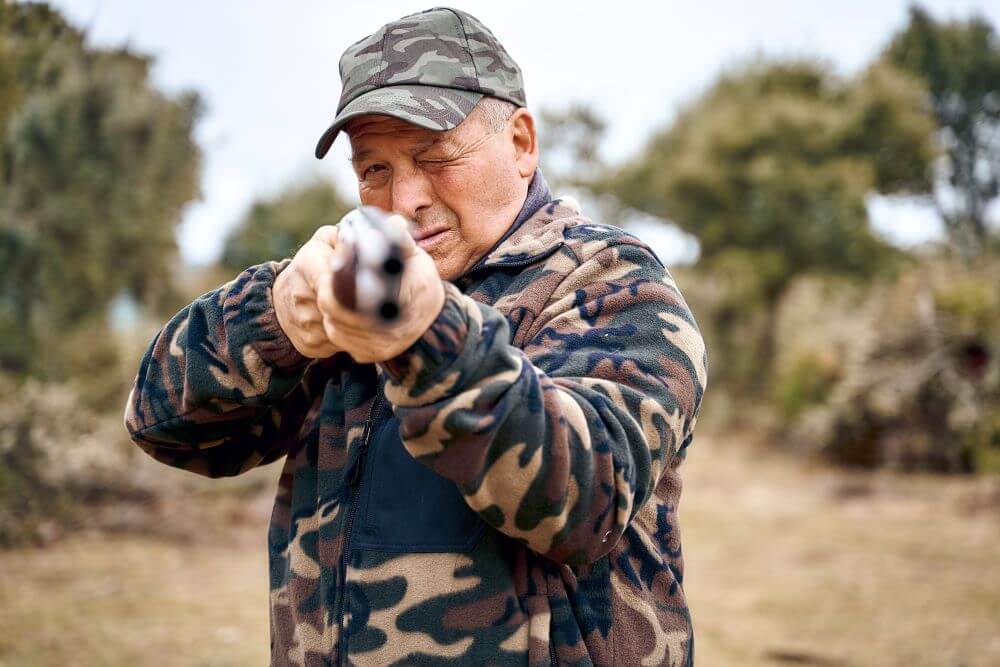
0 Comments